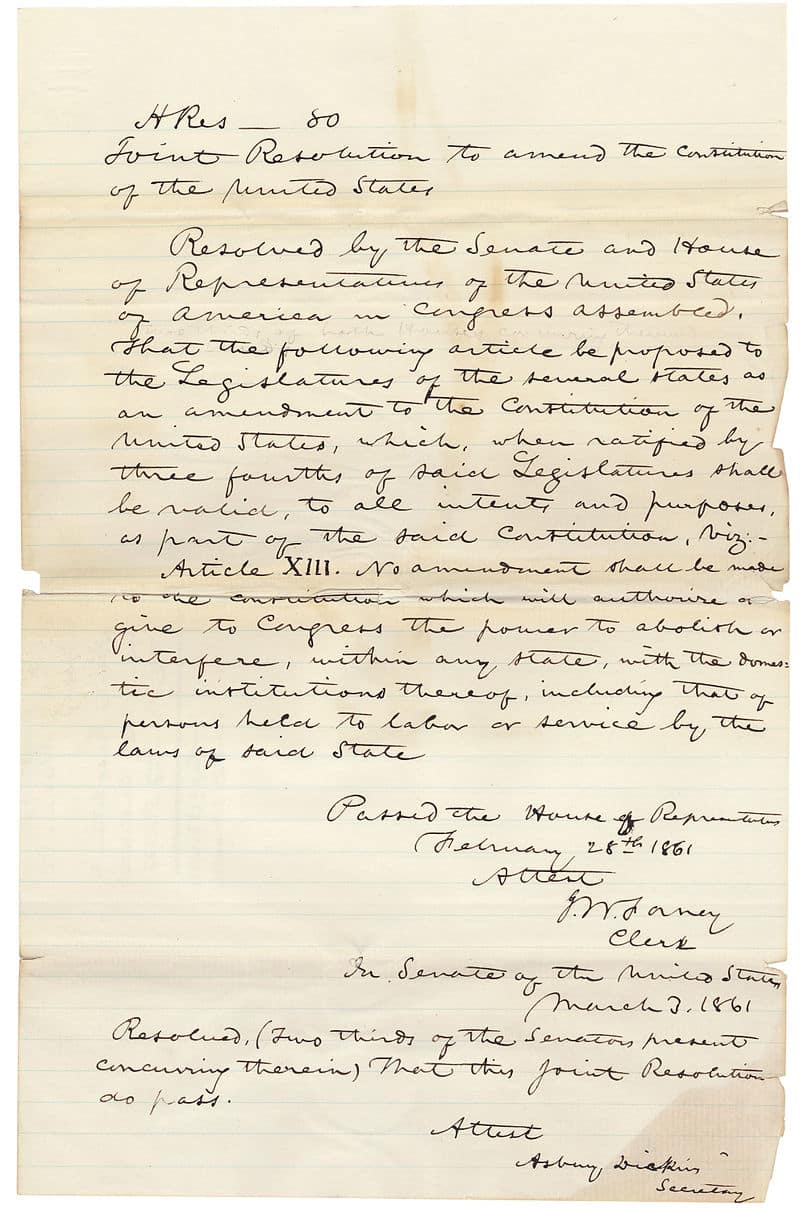The Corwin Amendment was proposed as an amendment that would shield domestic institutions from the constitutional amendment process. In 1861, this would have included slavery, among other things, and would have allowed for the institution to continue regardless of any Constitutional Amendment.

Corwin Amendment Text
The Corwin Amendment was similar to what the Founding Fathers of the Constitution did with slavery. They did not specifically name it. While slavery was not named in the text, it was assumed to be included. The text said:
No amendment shall be made to the Constitution which will authorize or give to Congress the power to abolish or interfere, within any State, with the domestic institutions thereof, including that of persons held to labor or service by the laws of said State.
History
- The amendment was passed and signed by outgoing President James Buchanan.
- Abraham Lincoln mentioned it in his inaugural address and seemed to support its passage.
- The Corwin Amendment was not ratified by all of the states. The only states to ratify the amendment were:
- Kentucky - April 4, 1861
- Ohio - May 13, 1861
- Rhode Island - May 31, 1861
- Maryland - January 10, 1862
- Illinois - February 14, 1862
- Ohio rescinded its ratification on March 31, 1862, and Maryland rescinded ratification on April 7, 2014
- On February 8, 1864, during the 38th Congress, with the prospects for a Union victory improving, Republican Senator Henry B. Anthony of Rhode Island introduced Senate (Joint) Resolution No. 25 to withdraw the Corwin Amendment from further consideration by the state legislatures and to halt the ratification process. That same day, Anthony's joint resolution was referred to the Senate's Committee on the Judiciary. On May 11, 1864, Illinois Senator Lyman Trumbull, Chairman of the Judiciary Committee, received the Senate's permission to discharge Senate (Joint) Resolution No. 25 from the Committee, with no further action having been taken on Anthony's joint resolution.
Possible Consequence
If the Corwin Amendment would have been ratified, it would have nullified the Reconstruction Amendments that were passed after the Civil War. It would have been possible for slavery to have survived all attempts to remove it since the Corwin Amendment would have allowed individual institutions to ignore federal amendments.
